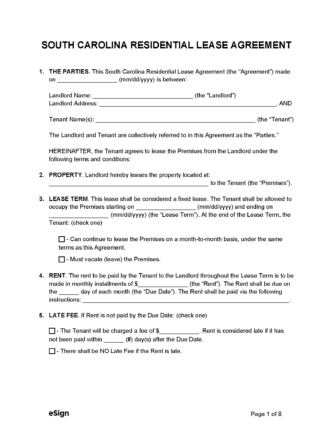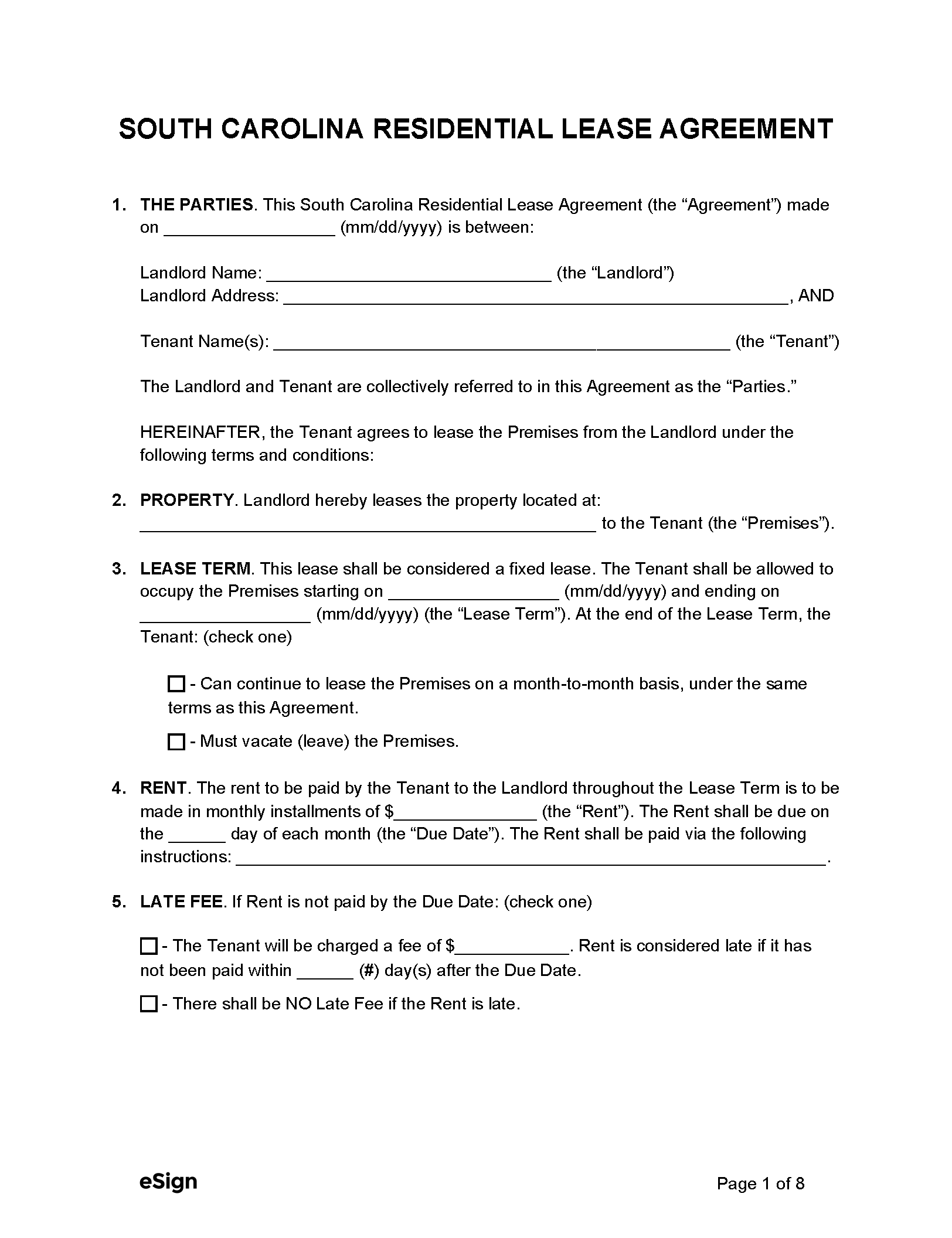Rental Application – A document used to collect, organize, and review lease applicant information.
Required Disclosures (3)
- Lead-Based Paint Disclosure (PDF) – If a rental unit was constructed prior to 1978, the landlord must disclose to tenants whether lead-based paint exists on the premises.[1]
- Owner Disclosure – Before the occupancy begins, the tenant must receive the name and address of the property owner or another person authorized to accept the service of process and official notices and demands.[2]
- Security Deposit Calculation – Landlords renting five or more adjoining rental units and using different standards for calculating the security deposits must disclose the criteria they use to determine the amounts.[3]
Security Deposit Laws
- Maximum Amount ($) – No statutory limit.
- Returning to Tenant – 30 days.[4]
Rent Grace Period
In South Carolina, there is no grace period required before late fees can be charged.
Landlord Resources
- South Carolina Residential Landlord and Tenant Act – Title 27, Chapter 40
- Handbook (Guide) – Landlord and Tenant Law in SC

